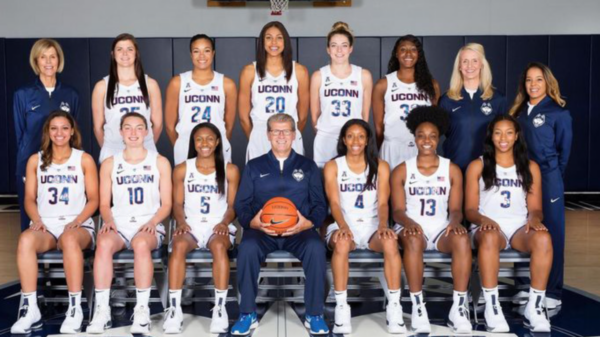By: James B. Ewers Jr. Ed. D.
The NCAA is the governing body for college athletics in America. It has a long history since its inception in March 1906.
This longevity has served the NCAA well. It has provided a template for athletic engagement for athletes, coaches, athletic directors and presidents.
Membership in the National Collegiate Athletic Association requires that colleges pay their monetary dues.
Championships are played at all three levels, namely, Division I, II and III.
Some of these championships are held on different college campuses across the country. At the Division I level, finals events are held on neutral sites. For example, the Women’s Final Four basketball games were played at the Amalie Arena in Tampa, Florida.
It is the highlight of a student-athlete’s career to say they have played in the NCAAs. The memories made will last a lifetime.
The realization comes usually after your playing days are over. I played in an NCAA regional tennis tournament in.
New Jersey many years ago.
There is now unprecedented publicity around the NCAA. Television rights have lined the coffers of the NCAA and conferences as well.
That is in part why you have seen colleges changing conferences, especially at the Division I level. For example, the University of Maryland once in the Atlantic Coast Conference is now in the Big Ten Conference.
The University of Texas once in the Big 12 Conference, is now a member of the Southeastern Conference. It is safe to say that these schools have gained much from aligning themselves with other conferences.
History says student-athletes only received athletic scholarships. They usually consisted of tuition, room and board. Some critics have long said that this paradigm was unfair because the college athletes were making money for someone else, namely the colleges and the conferences.
Now there is a change in what college athletes are receiving. Many student-athletes are becoming millionaires while still in college.
They are being paid to perform and to render their services to the colleges. College sports have taken a turn these days. What turn depends upon your viewpoint and maybe your experiences.
While I am a traditionist, I believe college athletes should be paid.
Let’s be clear. Student-athletes have made money for their colleges and coaches over the years.
Coaches’ contracts were tied to the number of wins they recorded. They still are along with bonuses. In a funny yet very serious way, a coach’s livelihood is dependent
upon young men and women, many in their teens. Duke University star basketball player, Cooper Flagg is eighteen years of age.
Name Image and Likeness began in 2021 when the NCAA created a policy saying that student-athletes could benefit from their NIL. At present, the NIL train has left the station without a conductor.
Recently, Tennessee quarterback Nico Lamaleava signed an NIL agreement reportedly worth 8 million dollars. He wanted more. Tennessee said no and according to reports will be signing with UCLA. Colin Cowherd of Fox Sports was the first to report this news.
The transfer portal has now become an athletic expressway to more riches, acclaim and fame for student-athletes. Every day you see college athletes that you thought would stay leave for “greener” pastures.
Should Name, Image and Likeness agreements be regulated in some way?
Craig Robertson, former New Orleans Saints linebacker believes it should.
He said, “Transparency and protection of the student-athletes should be the main priority. The billion-dollar question is how? A lot must be agreed upon over the different conferences and divisions to make it work. A commissioner (separate from the NCAA and presidents) should be in place to help govern the conferences. Players should have a representative and association to help govern NIL from faulty deals and compliance. The college game is at a point where it should mirror the NFL game. It’s time to start getting ready for it.”
What Robertson said makes a lot of sense. Let’s get onboard.
Dr. James B. Ewers, Jr. Ed. D. is a long-time educator who hails from Winston Salem, N.C. Ewers is a life member of the NAACP and a member of Alpha Phi Alpha Fraternity. He is a member of the National Association of Black Journalists.

You must be logged in to post a comment Login